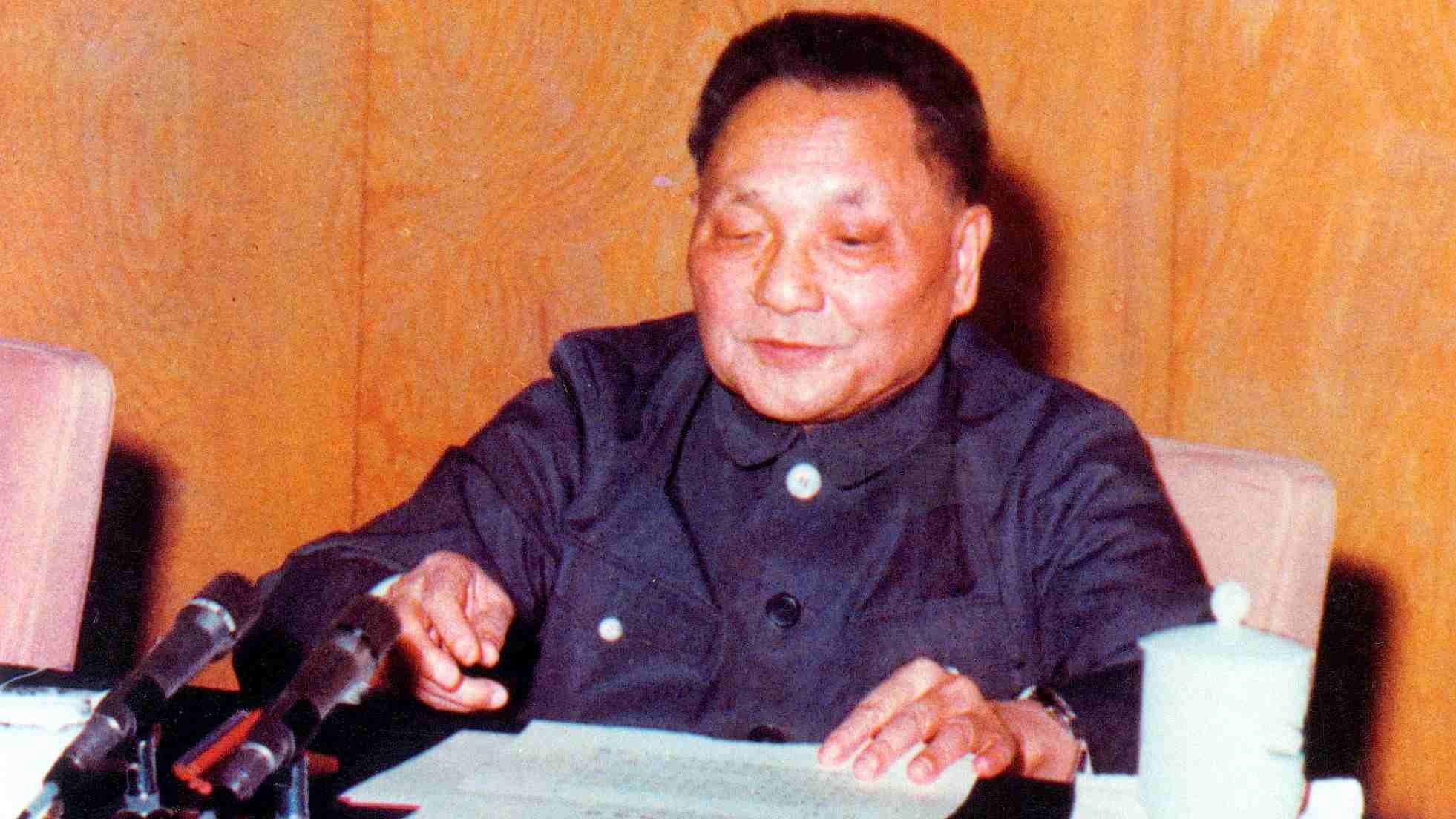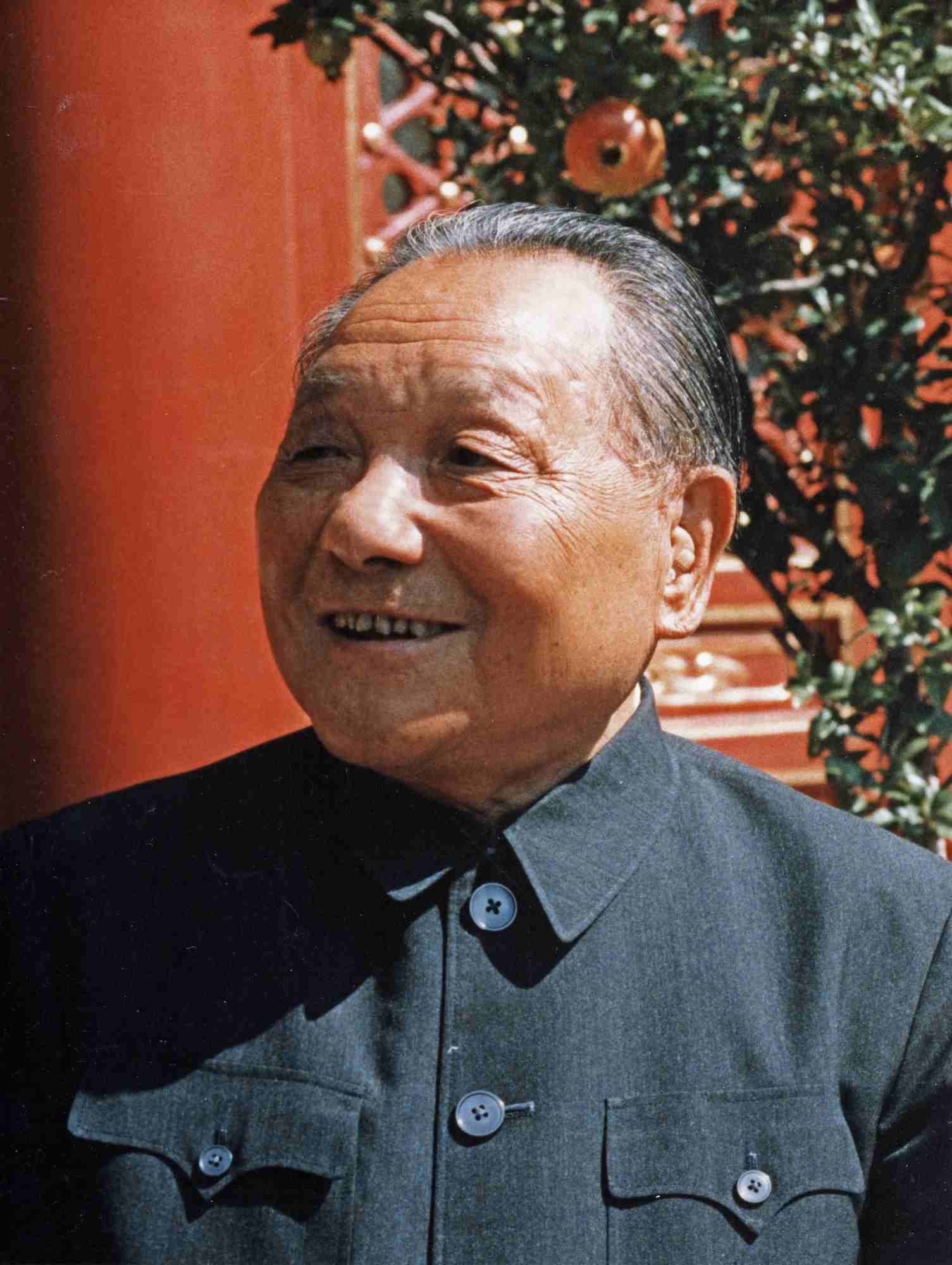
Politics
17:44, 19-Feb-2017
Opinion: Deng Xiaoping’s lasting legacies
Updated
10:49, 28-Jun-2018

Guest commentary by Victor Zhikai Gao
February 19, 2017 is the twentieth anniversary of Deng Xiaoping's passing away. As China's paramount leader, Deng Xiaoping brought China out of a huge ideological box and brought the Chinese nation onto the road of reform and opening to the outside world.
I have called Deng Xiaoping a prophet for the Chinese nation, because what he predicted about the future of China, what he promised to the Chinese people, has been more than achieved.

Bulletin board showing Deng Xiaoping in Shenzhen, Guangdong Province, China. /CFP Photo
Bulletin board showing Deng Xiaoping in Shenzhen, Guangdong Province, China. /CFP Photo
While China was a very poor country at the end of the 1970s, China is now the second largest economy in the world and is a major political power on the global stage.
Today, we celebrate Deng Xiaoping not only for his historical achievements, but also for the following great contributions:
1. Pragmatism and realism
Deng Xiaoping emphasized the importance of seeking truth from facts and was pragmatic in his strategic goals for China's development and realistic in his views about China and China's position in the world. These remain important values for China today. Pragmatism and realism will continue to guide China in the years and decades to come, and seeking truth from facts will continue to guide the Chinese nation when we continue our reform and opening to the outside world.

Deng Xiaoping at the 11th CPC Central Committee Third Plenary Session held in December 1978. /CFP Photo
Deng Xiaoping at the 11th CPC Central Committee Third Plenary Session held in December 1978. /CFP Photo
2. No complacency
Deng Xiaoping was always bent upon pushing forward with China's reform and opening to the outside. He always feared there would not be enough time. He always wanted to seize the day and seize the moment. Deng Xiaoping was never complacent. This quality remains very important to China today. China cannot afford to become complacent. China needs to keep up with reform and continue to open up to the outside world. In this sense, China's One Belt One Road Initiative is the logical continuation of China's opening to the outside world. In today's world of fast changes and many contradictions, China needs to be a major champion of free trade and globalization and stand firm against protectionism. China cannot be complacent with its own achievements or the current status of world affairs. China needs to give its weight to positive changes in the world today.
3. Innovation
Deng Xiaoping's hallmark was his eagerness to innovate, either bringing market economy elements into socialism with Chinese characteristics, or introducing the One Country Two Systems for Hong Kong. In China today, we need to innovate for many things on many fronts. There is no ready roadmap for China's growth and development in the years and decades to come. Everyday, China needs to innovate and come up with new paradigms to deal with new challenges, at home and abroad. Deng Xiaoping's courage to innovate will continue to guide the Chinese nation in the years and decades to come.

Deng Xiaoping in 1987. /CFP Photo
Deng Xiaoping in 1987. /CFP Photo
Deng Xiaoping was a great leader of wisdom, courage and vision. In China today, under the leadership of President Xi Jinping, we will use all the wisdom, courage and vision necessary to maintain stability at home, and keep peace abroad. In the coming years and decades, China will continue to grow at a robust speed, and China's contribution to the world economy will continue to grow. This is largely because of the solid foundation Deng Xiaoping laid for us in China, but will also be largely determined by the Chinese people and the Chinese government in seeking inspiration from Deng Xiaoping's wisdom, courage and vision.
(Victor Zhikai Gao is a former English interpreter for Deng Xiaoping, as well as chairman of the China Energy Security Institute. The article reflects the author’s opinion, not necessarily the view of CGTN.)

SITEMAP
Copyright © 2018 CGTN. Beijing ICP prepared NO.16065310-3
Copyright © 2018 CGTN. Beijing ICP prepared NO.16065310-3